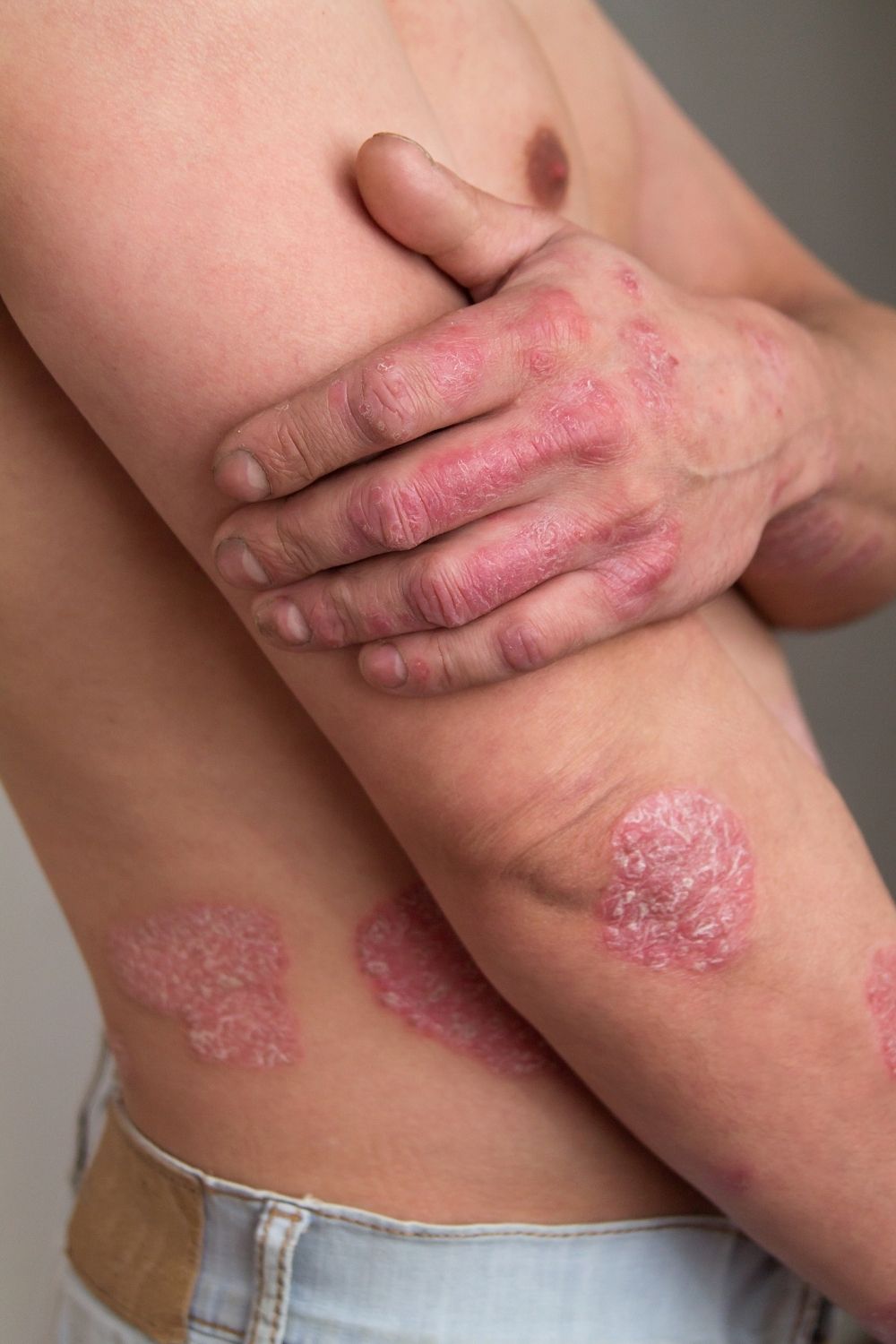August is Psoriasis Action Month
You are not alone in these times. Psoriasis Action Month is a great reminder of all that binds us – of all we share.
Each August, the National Psoriasis Foundation (NPF) unites its community in a show of support, celebration and dedication. We come together around a common commitment to finding a cure for psoriatic disease.
What is Psoriasis?
Psoriasis is a skin disorder that causes skin cells to multiply up to 10 times faster than normal. This makes the skin build up into bumpy red patches covered with white scales (called plaques). They can grow anywhere, but most appear on the scalp, elbows, knees, and lower back. Psoriasis can’t be passed from person to person. These plaques may be itchy and painful, and they sometimes crack and bleed. In severe cases, the plaques will grow and merge, covering large areas.
Psoriasis usually appears in early adulthood. For most people, it affects just a few areas. In severe cases, psoriasis can cover large parts of the body. The patches can heal and then come back throughout a person’s life.
People with psoriasis can also get a type of arthritis called psoriatic arthritis (PsA). It causes pain and swelling in the joints. The National Psoriasis Foundation estimates that between 10% to 30% of people with psoriasis also have psoriatic arthritis.
Treatments for Psoriatic Disease
Psoriasis and psoriatic arthritis (PsA) treatments aren’t one-size-fits-all, and that’s a good thing. It means that you can work with your health care provider to find the right psoriasis treatment — or combination of psoriasis treatments — for you that reduces or eliminates your symptoms.
Topicals
Phototherapy
Systemics
Complementary and Integrative medicine
Complementary and integrative medicine is a group of diverse medical and health care systems, practices and products that are not presently considered to be part of conventional, or Western, medicine. Always consult with your health care provider before seeking out complementary and integrative therapies.
What Can You Do This Month?
Watch this video to hear what you can do whether or not you have psoriasis, to help participate is psoriasis action month!

